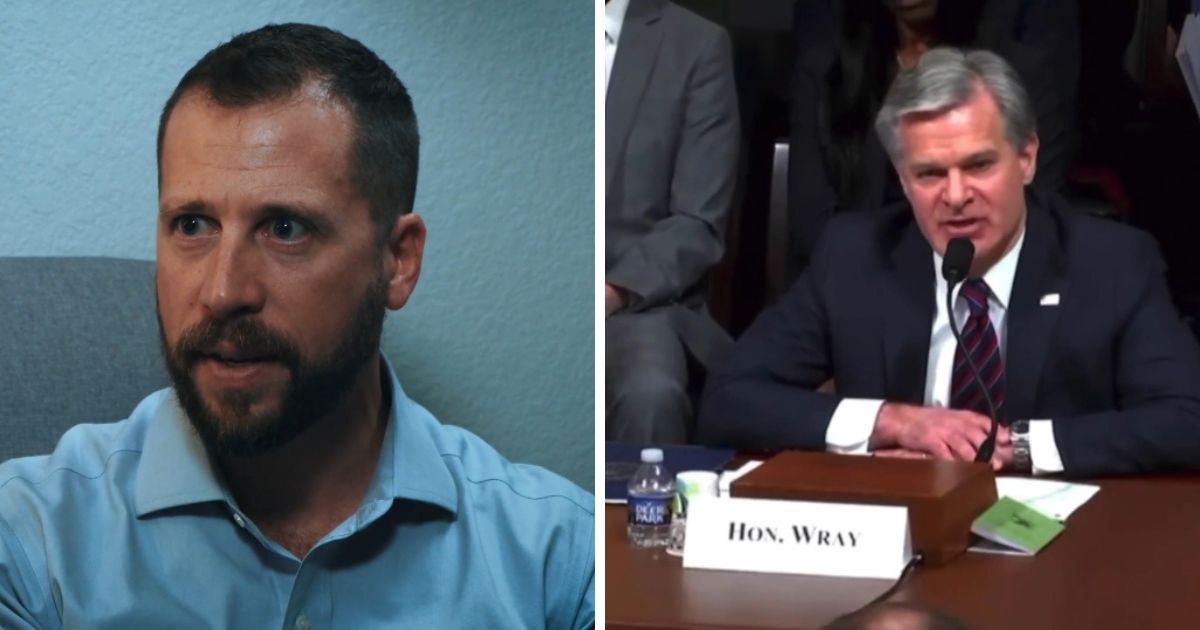New Campaign Funder: RFK Jr’s Potential Running Mate
The article discusses Nicole Shanahan as Robert F. Kennedy Jr.’s potential running mate, highlighting her role as a key funder for the campaign. Shanahan’s financial support, background, and the impact on the presidential race are explored, drawing parallels with historical instances of wealthy vice presidential candidates aiding campaigns. The article delves into Nicole Shanahan’s collaboration with Robert F. Kennedy Jr. as his potential running mate, emphasizing her significant contribution as a key campaign funder. It also delves into Shanahan’s background, her financial support, and the potential influence on the ongoing presidential race, drawing comparisons to past instances of affluent vice presidential candidates supporting campaigns.
LOS ANGELES, California — California is often referred to as an ATM of politics for the frequency with which candidates of both parties jet in to scoop up campaign cash from well-heeled donors. In the case of Nicole Shanahan, the running mate to independent presidential hopeful Robert F. Kennedy Jr., the candidate is also effectively the bank.
Kennedy turned to Shanahan to fund his bid against President Joe Biden and the Republican nominee-in-waiting, former President Donald Trump. Shanahan, 38, is a Bay Area attorney and entrepreneur who has never held public office. But more to the point, she’s the former wife of Google co-founder Sergey Brin, and her divorce settlement made her fabulously wealthy.
Kennedy, son and namesake of the late attorney general and New York Democratic Sen. Robert F. Kennedy, tapped Shanahan for an independent White House ticket already heavy on vaccine skepticism and conspiracy theories. Kennedy has long promoted the scientifically disproven claim of a causal link between vaccines and autism. Shanahan appears to have a similar mindset. She “has for years denounced in vitro fertilization, calling it ‘one of the biggest lies that’s being told about women’s health today,’” Politico reported.
As for Shanahan’s ability to help fund Kennedy’s independent campaign, specific numbers won’t be available until after the second fundraising quarter, which ends on June 30 at midnight. However, Shanahan, before joining the Kennedy ticket on March 26, donated the maximum individual amount to his campaign and $4 million to the chief super PAC backing his bid to air a retro-themed Super Bowl commercial. In addition to backing American Values 2024, she gave $500,000 to another super PAC backing Kennedy, Common Sense PAC.
It’s an open question what kind of effect a well-funded Kennedy-Shanahan ticket would have on the looming rematch between Biden and Trump. For a while, it seemed to be taking crucial votes away from the Democratic president, at least as indicated by comparing Biden/Kennedy/Trump three-way polls to five-way polls, including hard-left candidates Cornel West and Jill Stein.
Two recent major national polls show Biden running better in a five-way than a two-way race. Biden moves from 2 points down to 2 points up nationally when the non-major-party candidates are included, according to NBC News. In the latest Marist poll, Biden leads Trump by 3 points head-to-head and by 5 points in a five-way race.
Since West and Stein are pulling 5% in the former poll and 4% in the latter (presumably taking very few votes from Trump), it’s reasonable to assume Kennedy is beginning to cut into the MAGA vote to an extent that grabs Trump’s attention. And that has started to happen.
“‘Junior’ is totally Anti-Gun, an Extreme Environmentalist who makes the Green New Scammers look conservative, a Big Time Taxer and Open Border Advocate, and Anti-Military/Vet,” Trump said in an April 26 Truth Social post.
Nonetheless, Democrats are deeply concerned about Kennedy, particularly as he and Shanahan gain ballot access in key states. The Democratic National Committee hired a prominent, sharp-elbowed party operative, Lis Smith, to blunt the Kennedy-Shanahan ticket’s progress.
“There is nothing subtle about what the GOP and their media apparatus is doing with @RobertKennedyJr — they are propping him up to play spoiler for Trump,” Smith posted on X on April 5.
Prominent Democratic elected officials also regularly denounce Kennedy and, by extension, Shanahan, who has made almost no campaign appearances since being tapped for the ticket. “When people go to the ballot box, they’re going to see that there are really only two choices. Because it’s throwing away your vote if you’re a Democrat and you vote for someone else on the ballot other than Joe Biden,” Gov. J.B. Pritzker (D-IL) said on CNN on April 21.
Rich running mate, nothing new
There’s a certain irony about Kennedy turning to a wealthy running mate to prop up his campaign. He’s a grandson of Joseph P. Kennedy Sr., the Wall Street whiz-turned-isolationist U.S. ambassador to Great Britain, who bankrolled his sons’ political careers.
In 1958, John F. Kennedy, the Massachusetts senator who would become America’s 35th president, joked about his 1960 White House ambitions at the Gridiron Club in Washington, D.C.
“I have just received the following wire from my generous daddy: ‘Dear Jack — don’t buy a single vote more than necessary — I’ll be damned if I am going to pay for a landslide,’” he said.
The Kennedy family patriarch, who died in 1969, set up family trusts for each of his 30 grandchildren, worth several million dollars today. Forbes reported in 2023 that Robert F. Kennedy Jr. and his wife, Curb Your Enthusiasm actress Cheryl Hines, are worth roughly $15 million. That’s based on an analysis of the couple’s earnings, properties, and debt as gleaned from Kennedy’s legally required financial disclosure that he filed in June of that year, when he was still in the Democratic fold, challenging Biden for the party’s presidential nomination.
Shanahan isn’t the first vice presidential candidate put on a ticket to help fund its campaign. In 1980, David Koch, a second-generation member of the family that founded Koch Industries, was the Libertarian Party’s 1980 vice presidential nominee. As the understudy of presidential candidate Ed Clark, Koch, a political activist, philanthropist, and chemical engineer by training, contributed heavily to the ticket. Of the $3.5 million the campaign raised, $2.1 million came from Koch, Reason reported in 2014.
The money for television advertising and other promotions undoubtedly helped the Libertarian ticket win 1.06% of the popular vote. That was good for fourth place behind the presidential winner, Republican Ronald Reagan, his vanquished Democratic incumbent, President Jimmy Carter, and John Anderson, a liberal Republican congressman from Illinois running as an independent.
The Clark-Koch libertarian ticket performed particularly strongly in Alaska, winning 11.66%. That’s still the best Libertarian ticket single-state showing. In 2016, though, the Libertarian presidential nominee, former New Mexico Gov. Gary Johnson, who held office as a Republican from 1995 to 2003, won 3.3% of the vote nationally. In New Mexico, Johnson won 9.3% of the home state vote, behind Democratic presidential nominee Hillary Clinton and the 2016 victor, incoming President Donald Trump.
The 1980 Libertarian Party platform also had some lasting effects on politics and public policy. It presaged some societal changes decades later, such as broad, if not universal, support for gay rights. And, to a degree, curbing welfare programs. A 1996 federal law enacted by the Republican Congress and Democratic President Bill Clinton gave states wide latitude to cut welfare spending.
But most of its ideas from that campaign remain fanciful today, such as the proposed abolition of Social Security, the Federal Reserve Board, minimum wage laws, corporate taxes, all price supports, and subsidies for agriculture and business while doing away with federal law agencies such as the FBI, CIA, SEC, and several others.
Nor was Koch, who died in 2019, the first vice presidential nominee to fund a significant portion of the campaign he took part in. The gambit went back 76 years before that.
In 1904, West Virginia industrialist Henry Gassaway Davis was chosen by Democrats at their national convention in St. Louis as running mate to the party’s presidential nominee, Alton B. Parker, chief judge of the New York State Court of Appeals. Democrats made little secret as to why they picked the 81-year-old business tycoon — his wealth. And Davis was happy to play along.
A self-made businessman, Davis became a railroad executive before branching out into coal mining and banking as founder of the Potomac and Piedmont Coal and Railroad Company. He was a member of the House of Delegates during West Virginia’s early years of statehood and then a senator from 1871 to 1883.
CLICK HERE TO READ MORE FROM THE WASHINGTON EXAMINER
In the 1904 campaign, Davis, as the Democratic ticket mate of Parker, faced formidable odds against the Republican ticket of President Theodore Roosevelt and GOP vice presidential nominee Charles Fairbanks, a senator from Indiana. Roosevelt, as vice president, had inherited the presidency after the September 1901 assassination of President William McKinley. Running for a full term of his own, Roosevelt could boast of antitrust measures against big corporations at a time of great public suspicion about concentrated power, and federal land conservation efforts, among other achievements.
Davis donated about $185,000 (several million in 2024 dollars, depending on the currency calculation), which ended up being over a third of the total Democratic presidential campaign budget. But the largesse did little good. In November, the Parker-Davis ticket lost in a landslide to Roosevelt and Fairbanks, 336 to 140 in the Electoral College and 56% to 38% in the popular vote.
" Conservative News Daily does not always share or support the views and opinions expressed here; they are just those of the writer."





